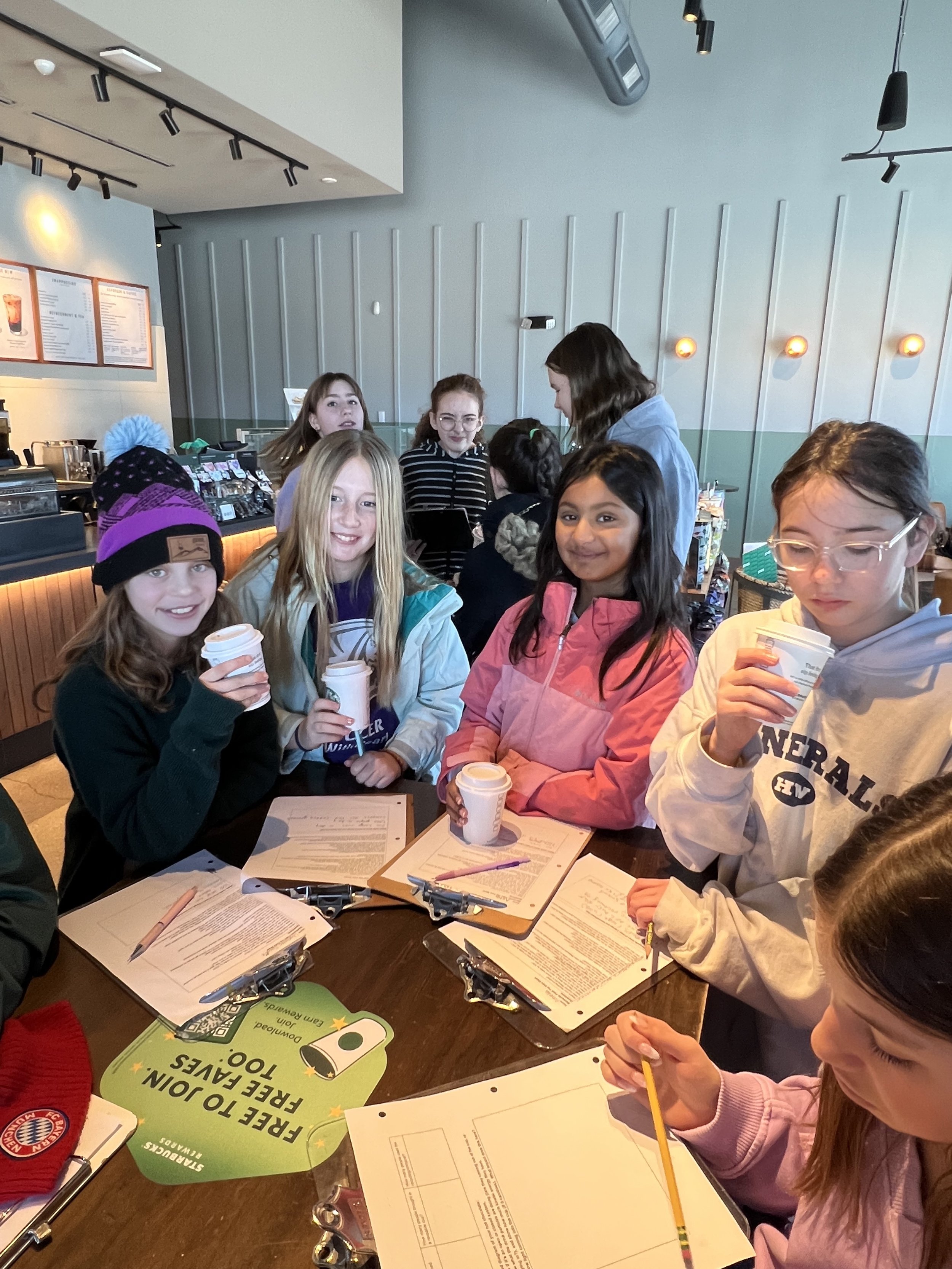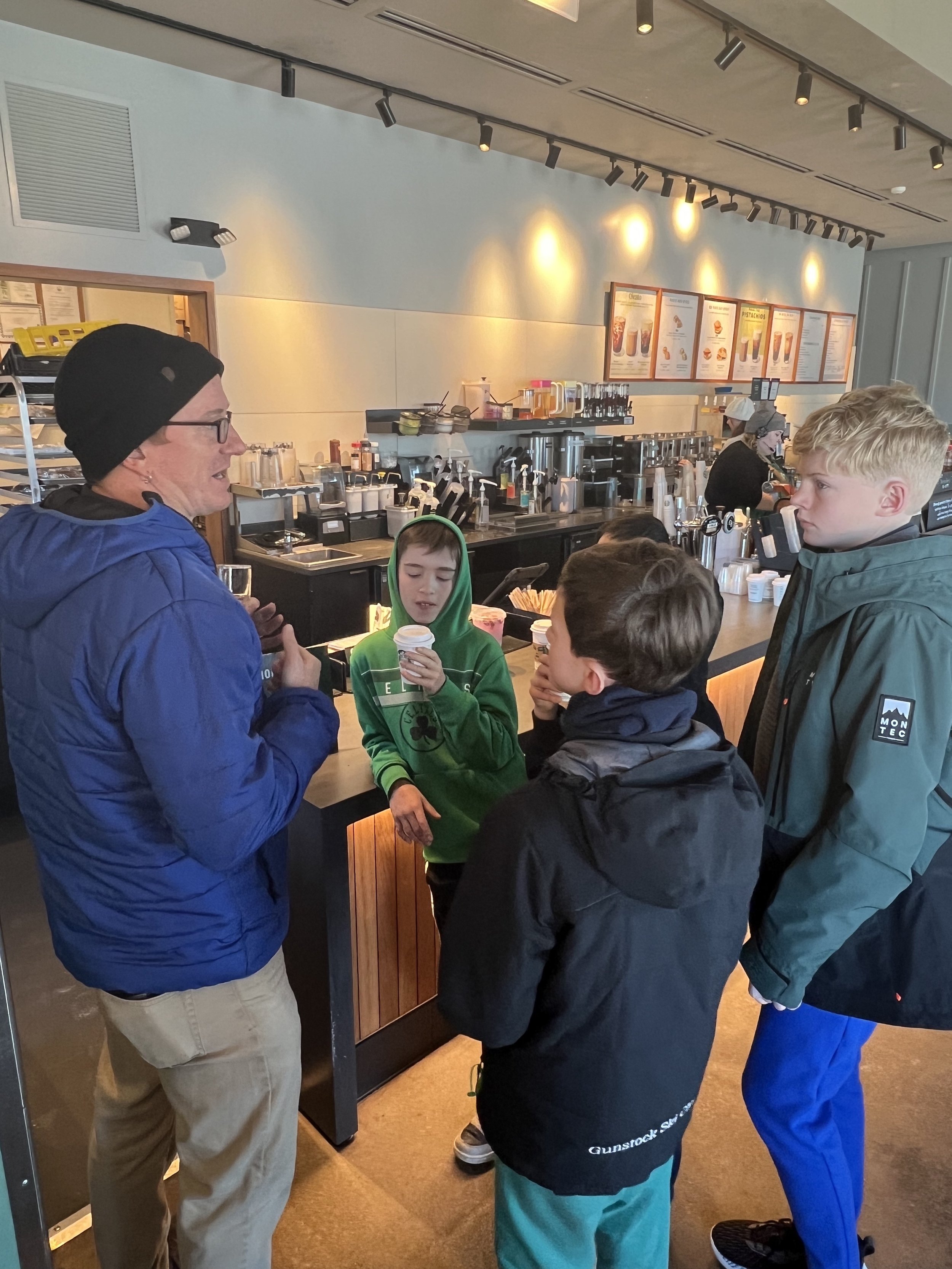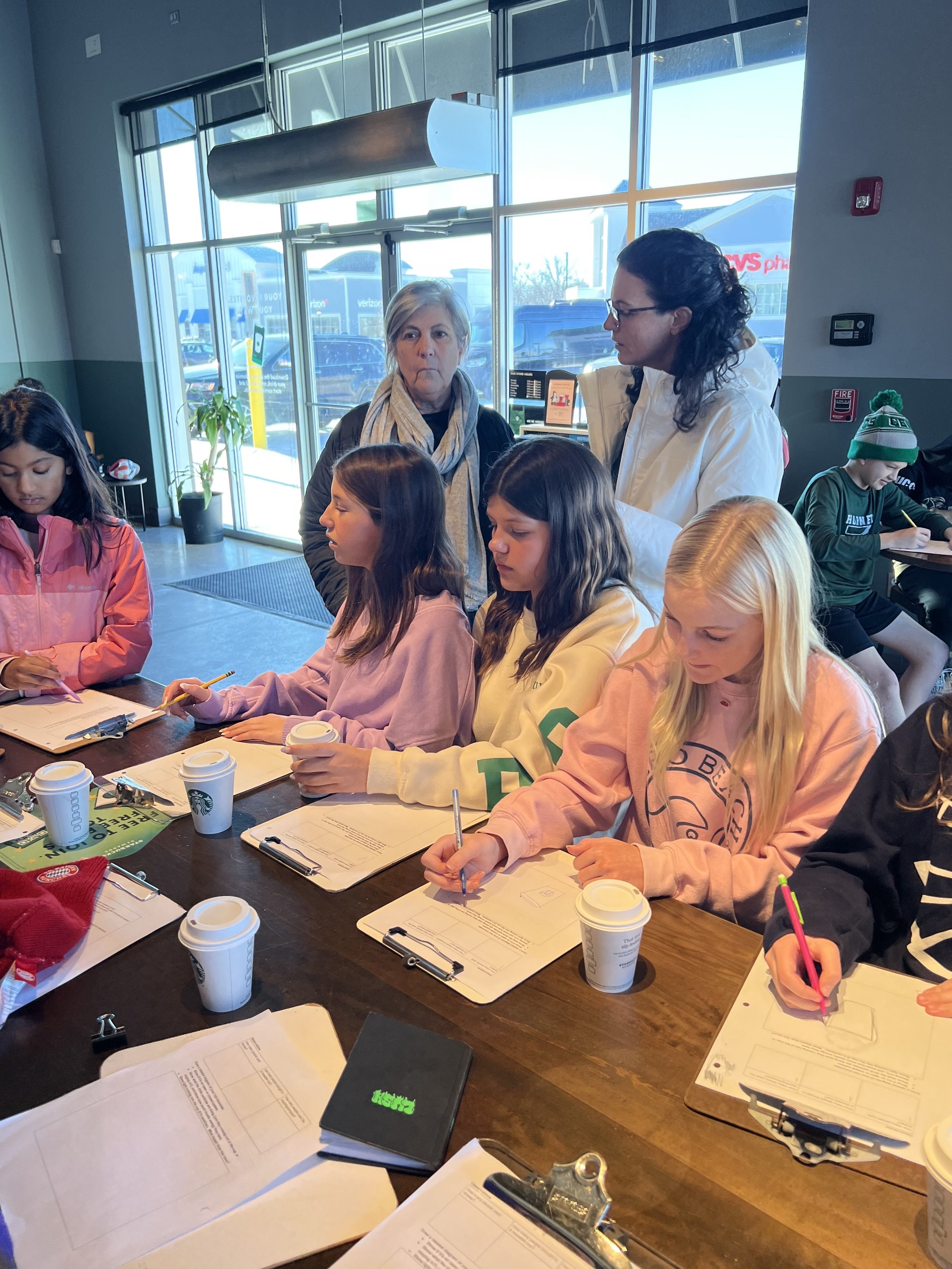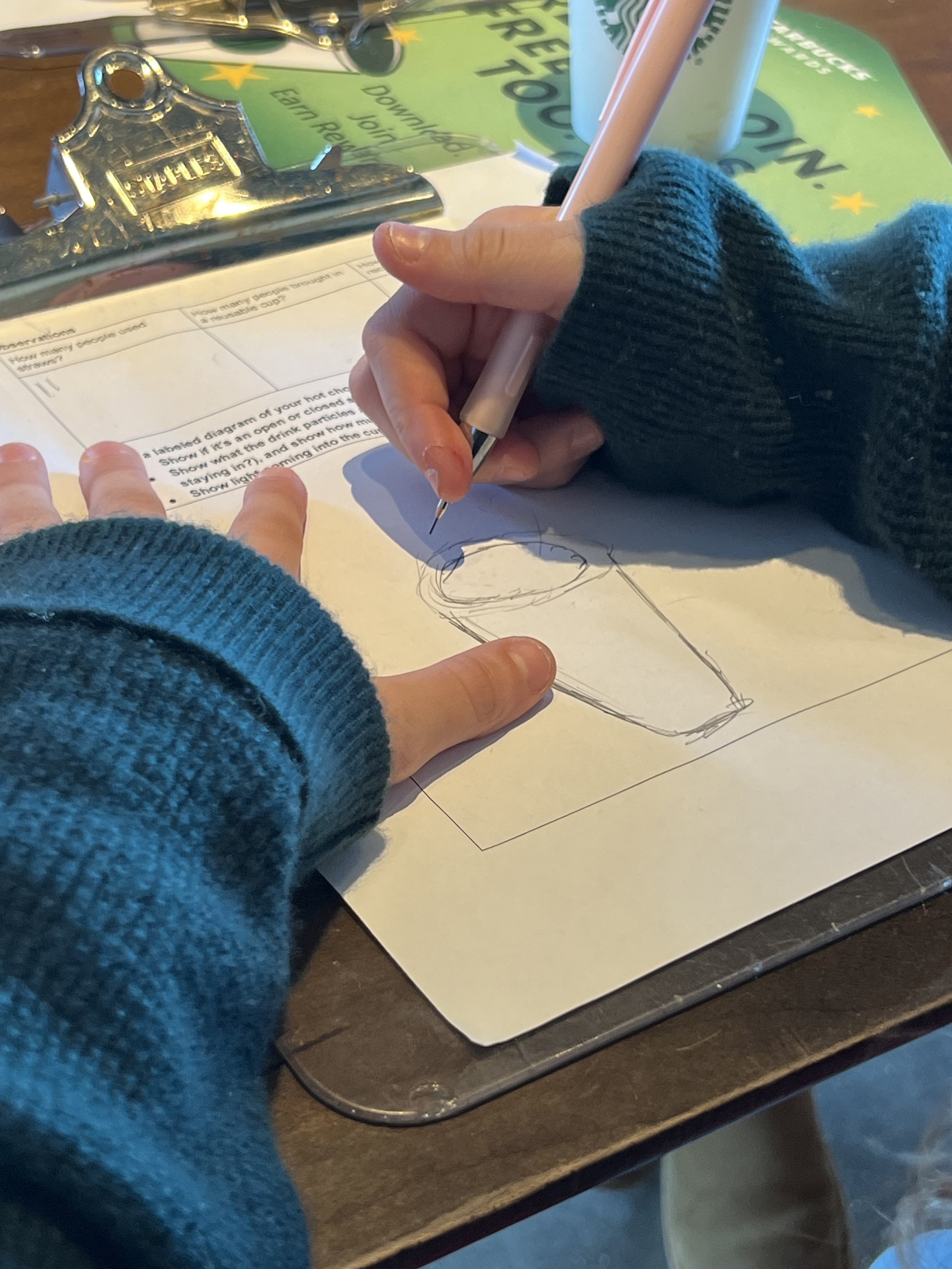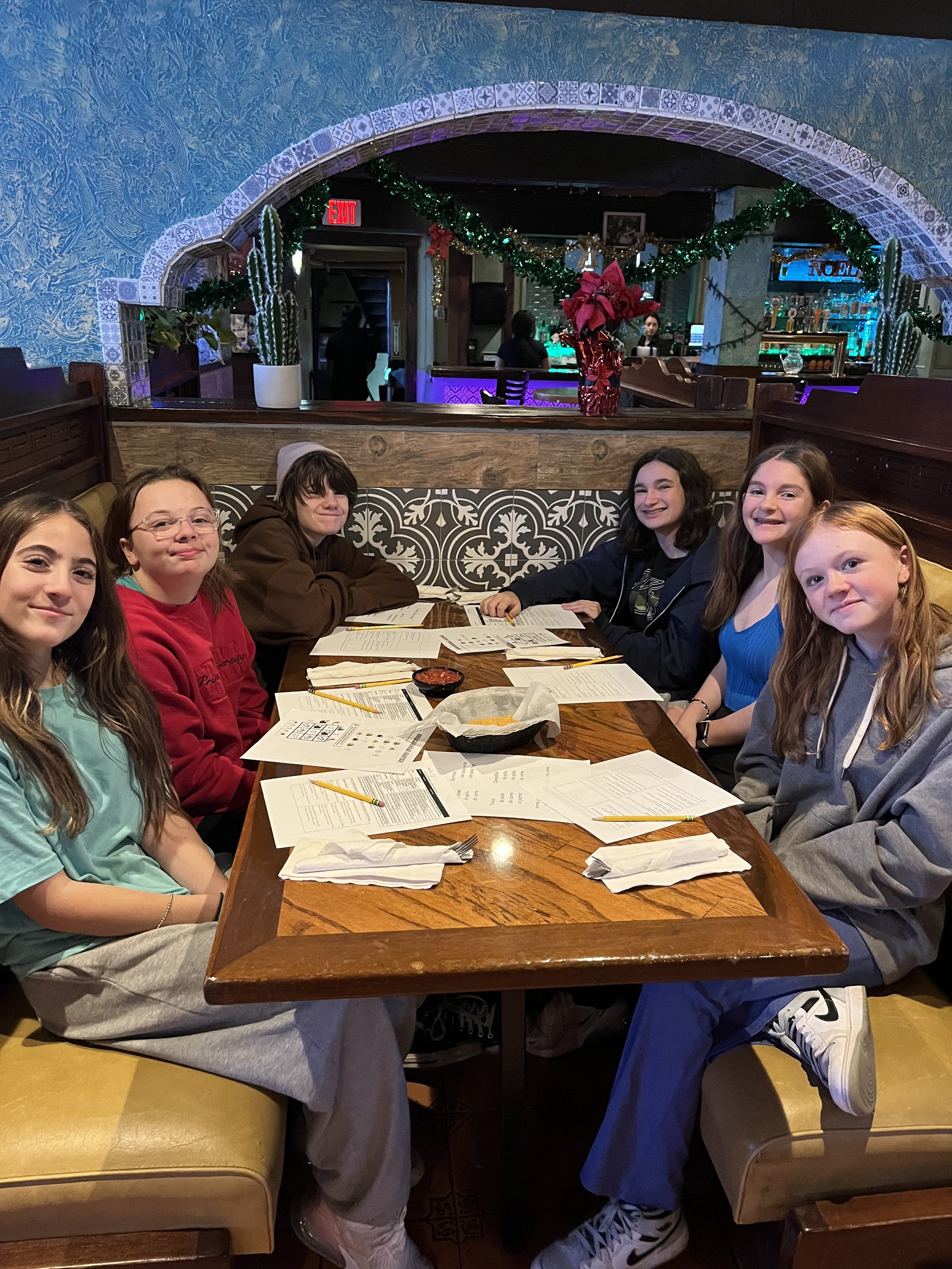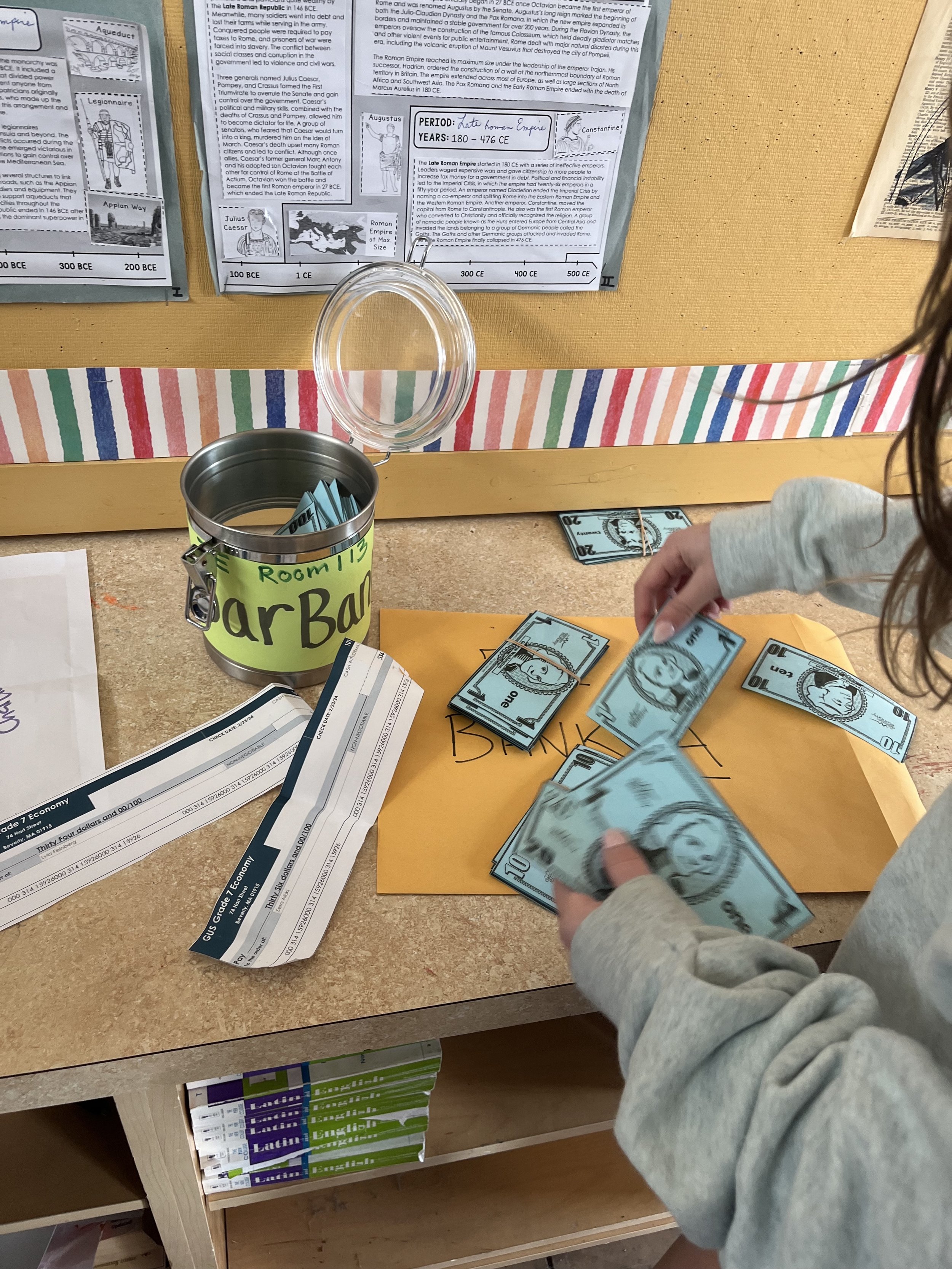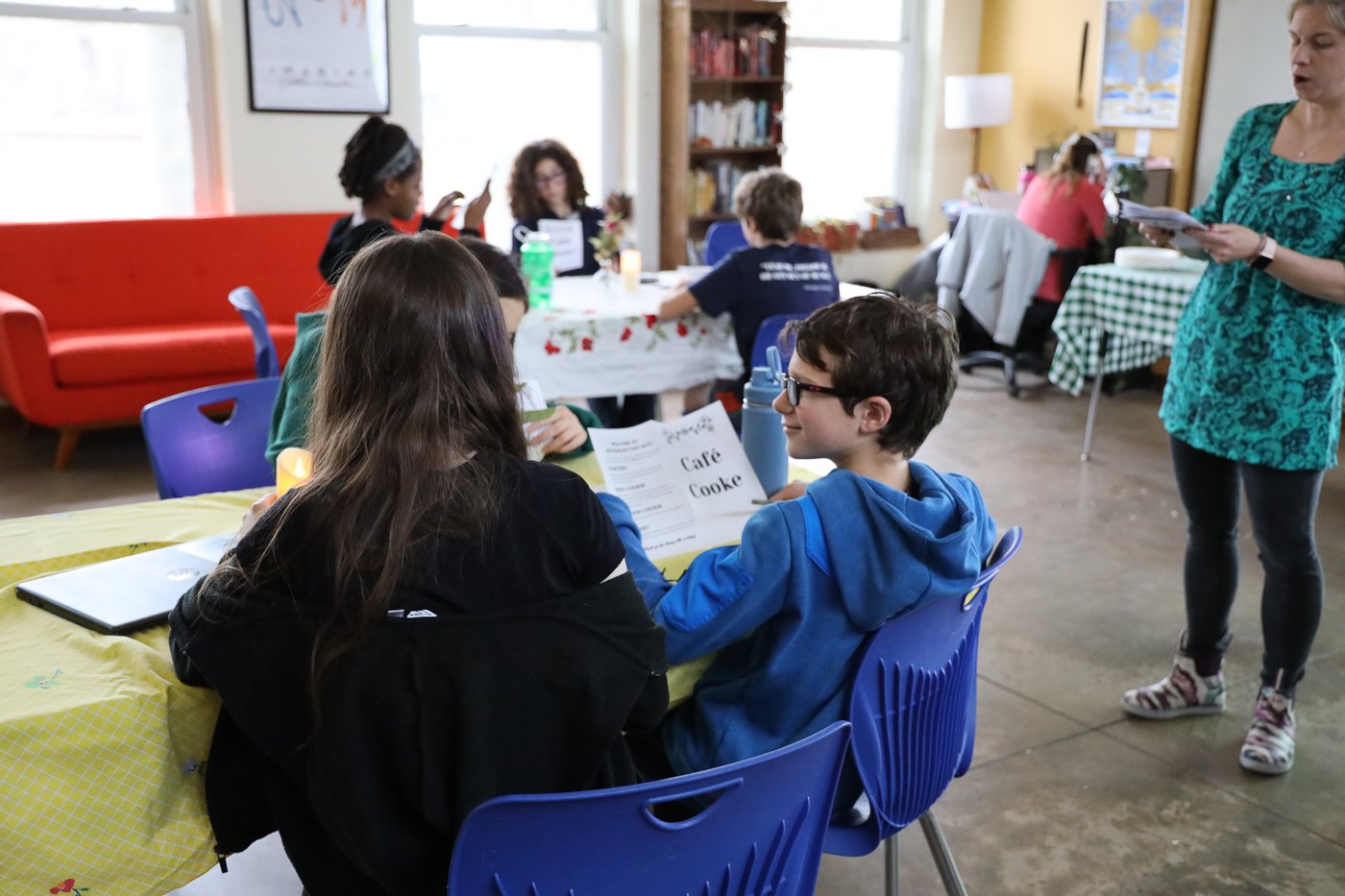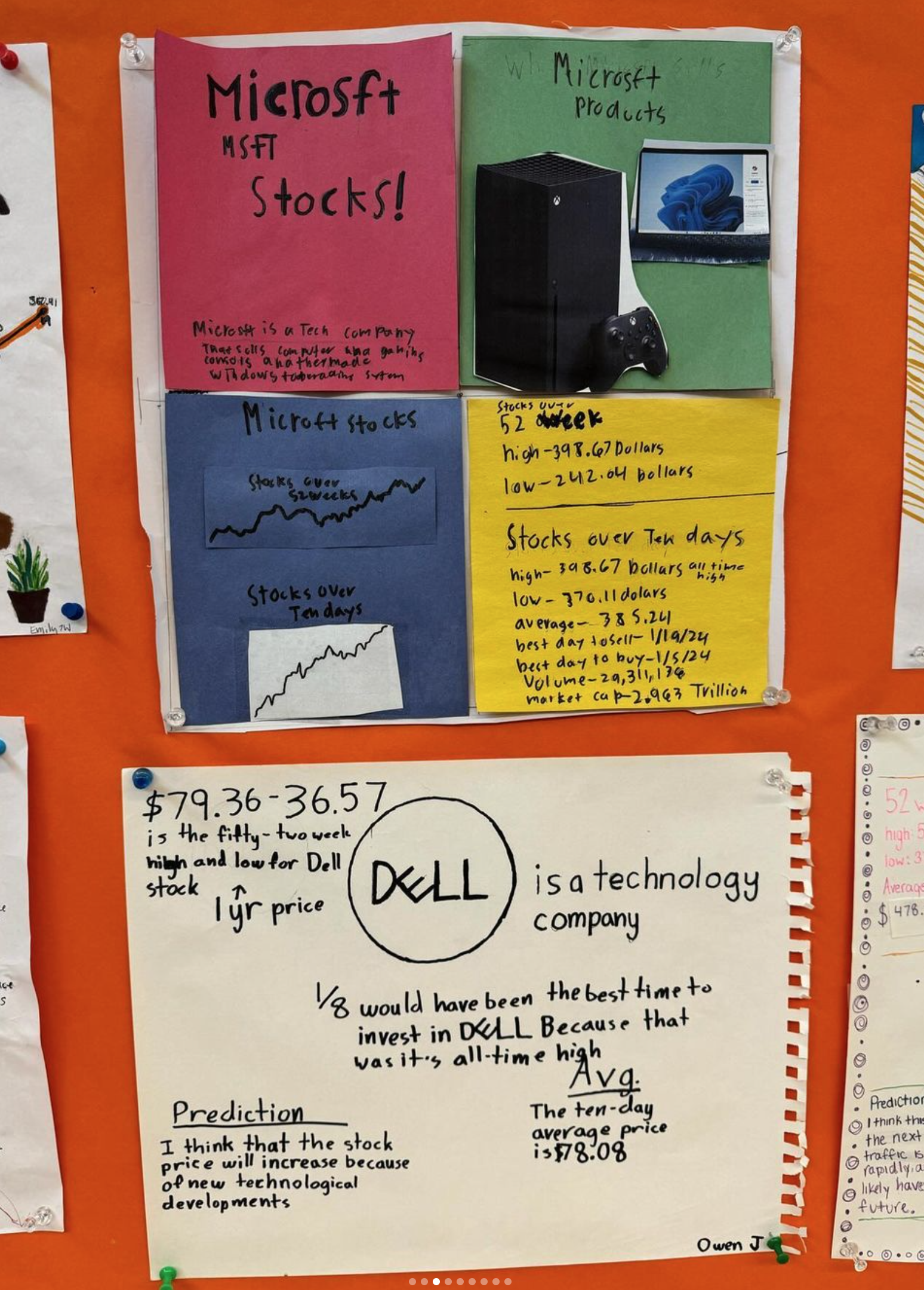Developing Skills for Today + Tomorrow
How a GUS education helps prepare students for the future.
As I walked into the Gloucester Starbucks at 8:45 a.m. on a Monday in January, I was pleasantly surprised by the layout of this particular branch of the popular coffee chain. It was an industrial-based open-concept design, with poured concrete floors reminiscent of those in our upper school building and exposed HVAC piping. There was pleasant but loud music coming out from the multiple speakers in the shop, all of which blended in with the sounds of baristas taking orders, or the coffee machines grinding beans and the distinct sound of a frother steaming milk. Doing my best to blend in, I placed an order and then scanned the room to see how our sixth graders - all 29 of them - would comfortably fit when they arrived in just a few minutes.
In sixth grade science, students had been learning about what factors cause beverages to heat up or cool down, as part of their unit on heating and cooling. Experimentation in the science lab got students thinking about what local coffee shops use to keep their drinks hot or cold, and questioning the environmental impacts of those products, which led to their desire to visit Starbucks.
“The students expressed interest in taking a field trip to a local Starbucks to see the types of cups they offer to customers, all while seeing how they are working towards the corporate level’s pledge to become more resource positive.”
With a few small tables along the walls, there was, thankfully, a larger rustic-style table with seating for up to about a dozen people. As soon as the two GUS vans pulled into the parking lot, I overheard the baristas chatting amongst themselves: “OMG. Is this them?! Wait … this is a field trip?” “How old are they, again? I thought it was only going to be like 15 of them!”
As the students unloaded from both vans and entered Starbucks - seemingly taking over the entire space - I sensed some trepidation and a slight nervousness in the air, so I decided to speak up: “I bet you weren’t expecting close to 30 middle schoolers first thing on a Monday!” Two of the baristas smiled and acknowledged that they knew GUS students were coming, but it was still a bit different from their typical Monday morning clientele. Moments later, the branch manager, Cal, came out from behind the scenes with his laptop in one hand, and a glass filled with iced coffee in the other. We quickly exchanged pleasantries and I thanked him for agreeing to host our students in their inquiry-driven pursuits to which he said, “Absolutely! This is an awesome opportunity!”
Once brief introductions were made, students had the chance to ask their questions:
“How much do plastic cups cost, per unit?”
“How many customers do you serve on average each day?”
“What are you doing to reduce plastic waste at this specific branch?”
“How often are people bringing in their own reusable coffee cups each day?”
“What happens to all of the coffee grinds?”
“What can we do to help your Starbucks achieve the corporation’s overall sustainability goals?”
So, what does this all have to do with education at GUS? At GUS, we do education differently. Our place-based, inquiry-based approach creates authentic learning opportunities, like this trip to Starbucks, that nurture students’ natural sense of curiosity. Sometimes these explorations take us to the beach, our on the nature trail, or sometimes they take is to a local coffee shop as students question, make meaning, and get inspired. As students asked questions, they also took lots of notes. Then, they were able to take their field notes and knowledge gained on their trip back to the classroom to enhance their demonstrable understanding of heating and cooling properties and sustainability practices outside of GUS.
According to a World Economic Forum (2023) report, this current generation of students will be engaged in many professions and jobs, which still have yet to be determined, or do not currently exist. Furthermore, what we do know is that a certain amalgam of skills will be needed in order to field these jobs (see right). If students are not given opportunities to apply what they are learning in the classroom in a real-world context, learning can feel two-dimensional - maybe even irrelevant. This is why a GUS education is so valuable. Putting students in control of their own learning promotes skill development in so many of the key areas identified as crucial now - and in the future.
Another example of putting students in control of their own learning is our ‘7th Grade Economic Experiment,’ led by Upper School Math Teacher Bradley Cooke. Students apply for a classroom job, earn a salary paid in “Boar Bucks,” pay monthly rent for their lockers, and manage a bank account. At its core, this is a financial literacy unit. The project fosters critical thinking as students analyze financial situations, make informed choices, and comprehend the consequences of their decisions. In its second year of implementation, Cooke designed the unit to address the timeless question from students… “When will I ever need to know this in the real world?” Initially intended as an isolated math unit, it is now part of a year-long financial literacy-driven pre-algebra course, designed by Cooke, for 7th grade students.
“My goal is to integrate essential mathematical concepts with real-world applications in order to foster a holistic understanding of problem-solving that highlights the importance of developing math skills when preparing to be responsible and successful citizens of the world. I want kids to see that math is everywhere.”
Financial literacy projects range from simply calculating the tip on their field trip to a Spanish restaurant, to studying the stock market and creating mock stock portfolios which they track all spring. By integrating math education with real-world applications, these projects equip 7th graders with practical experience and tools to make informed financial decisions. These early experiences help establish a foundation for responsible money management and long-term financial planning. It also encourages a mindful approach to career choices. Come April, Cooke is hoping to incorporate their mock stock portfolios into their bank accounts and have them pay taxes!
Through these projects and so many others that are essential components of a GUS education, our students are developing thinking skills that will allow them to be prepared to solve the complex problems of the future. Through creativity, original thinking, design thinking, and the ability to learn from mistakes, GUS graduates are poised to take advantage of every opportunity in the work force of tomorrow. From trips to Starbucks to dancing on stage, from service learning in Puerto Rico to a sleepover in Mystic or Chewonki, in everything we do here at GUS, our students are gaining the skills they need for success today and tomorrow.

